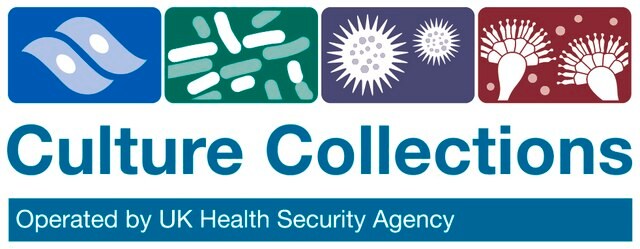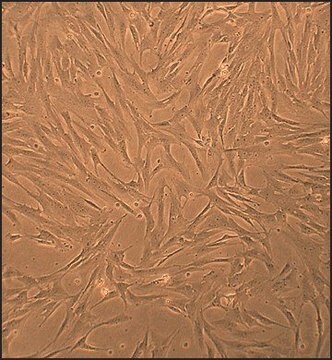FHM
88102401, fish colon (posterior), Epithelial-like
Zaloguj sięWyświetlanie cen organizacyjnych i kontraktowych
About This Item
Kod UNSPSC:
41106514
Polecane produkty
product name
FHM, 88102401
pochodzenie biologiczne
fish colon (posterior)
tryb wzrostu
Adherent
kariotyp
Modal no. 51
morfologia
Epithelial-like
produkty
Not specified
receptory
Not specified
metody
cell culture | mammalian: suitable
Warunki transportu
dry ice
temp. przechowywania
−196°C
Pochodzenie linii komórkowej
Fish Fat Head minnow
Opis linii komórkowej
Derived from tissue posterior to the anus of normal adult minnows. Reported to be capable of growth over a wide temperature range from 4°C-36°C with maximum growth at 34°C. Support growth of the virus of infectious pancreatic necrosis (IPN), cat fish tumour virus (CTV) and Granoff frog virus (FV1). ECHO-II will multiply in FHM but the cytopathic effect is not extensive.
Zastosowanie
Virus studies: Inf. pacr. necrotic virus, cat fish tumour, and Granoff′s frog viruses
pożywka hodowlana
EMEM (EBSS) + 2mM Glutamine + 1% Non Essential Amino Acids (NEAA) +10% Foetal Bovine Serum (FBS).
Rutyna subkultury
Split sub-confluent cultures (70-80%) 1:2 to 1:3; 34°C. Dislodge cells by agitation and scraping. Cells are reported to multiply over a wide range of temperatures 0°-36°C, with maximum growth at about 34°C. It is recommended that cultures are grown at 34
Inne uwagi
Additional freight & handling charges may be applicable for Asia-Pacific shipments. Please check with your local Customer Service representative for more information.
This page may contain text that has been machine translated.
Certyfikaty analizy (CoA)
Poszukaj Certyfikaty analizy (CoA), wpisując numer partii/serii produktów. Numery serii i partii można znaleźć na etykiecie produktu po słowach „seria” lub „partia”.
Masz już ten produkt?
Dokumenty związane z niedawno zakupionymi produktami zostały zamieszczone w Bibliotece dokumentów.
Nasz zespół naukowców ma doświadczenie we wszystkich obszarach badań, w tym w naukach przyrodniczych, materiałoznawstwie, syntezie chemicznej, chromatografii, analityce i wielu innych dziedzinach.
Skontaktuj się z zespołem ds. pomocy technicznej





